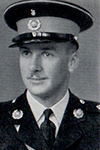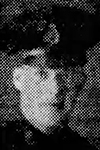Memorial Operation Frankton Baigneaux
This memorial commemorates Operation Frankton. The text on the plaque reads:
"At this spot, on 16 December 1942, at dusk, Édouard Pariente, a worker in the nearby quarry who had just come home from work, stood in the street face to face with one of the fleeing survivors of the commando mission of ten British Royal Marines, aboard five kayaks, against German blockade runners on the quayside in the port of Bordeaux Bassens. This was Marine James Conway in civilian clothes over his uniform. His leader and teammate, Lieutenant John MacKinnon RM, who had been suffering from anthrax on his knee for days, was hidden a few metres away. Their kayak, the Cuttlefish, sank before reaching its destination, having lost contact with the two other surviving crew members at the Verdon Dam after passing Pointe-de-Grave on the night of 7 to 8 December. Mr Pariente, unable to accommodate them due to lack of space, first went to Mr Guilhon, a notary who spoke English. The latter is absent and it is Mr. and Mrs. Pouget, who will accommodate the two men for the night. On the morning of the 17th, Mr. Cheyraud accompanies the Royal Marines on foot along the old railway line to Cessac, four kilometers away, to the Jauberts' house, where they will stay for three days. Later, the two British soldiers are captured in La Réole, taken to Bordeaux and then to Paris, where they will be executed on March 23, 1943, without having handed over their helpers during their interrogation. These Frenchmen risked the death penalty, as did their families. The secret of their courageous action was kept in Baigneaux until the end of the war."
Operation Frankton
The Cockleshell Heroes carried out Operation Frankton in December 1942, targeting German ships in Bordeaux. Trained at Lumps Fort in Portsmouth, they paddled 60 miles in collapsible kayaks to lay limpet mines.
Of the ten commandos, two were drowned, six were captured and executed, and only Major Hasler and Marine Sparks escaped. Despite heavy losses, the raid sank two ships and damaged four, disrupting enemy supply lines. Winston Churchill later credited it with shortening the Second World War by six months.
Do you have more information about this location? Inform us!
Source
- Text: TracesofWar
- Photos: TracesofWar
- Chemins de mémoire de l’opération Frankton






